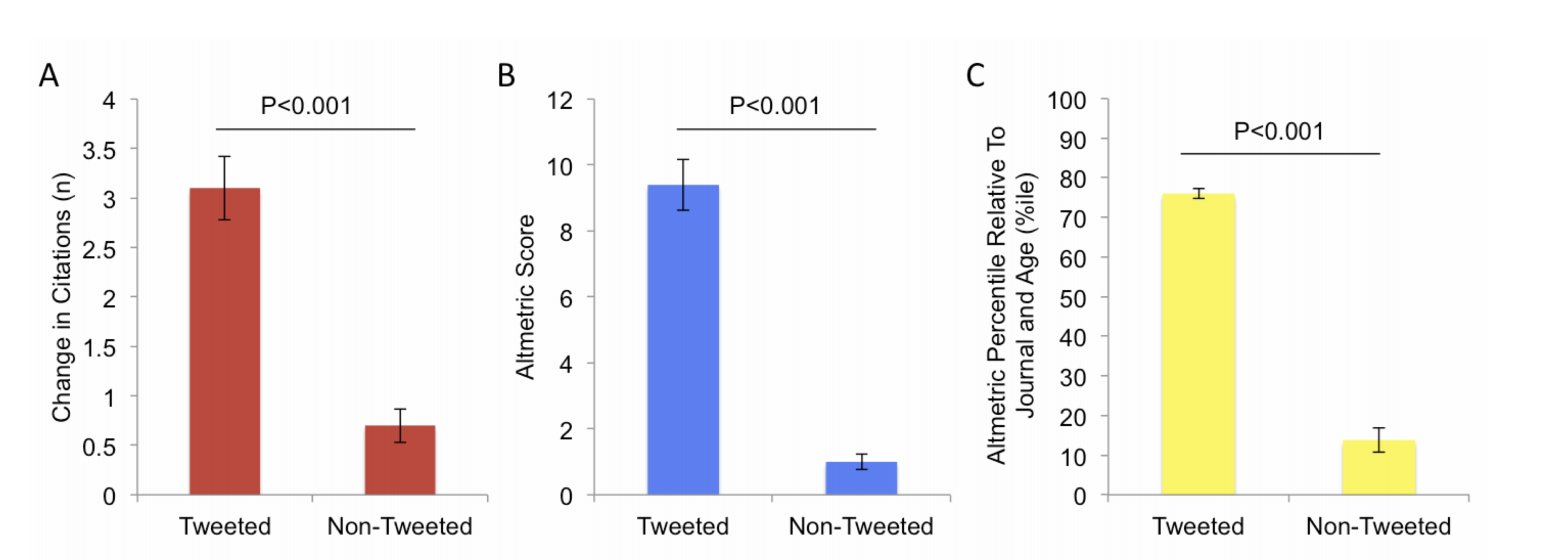In the big picture of tech and social media companies, measured by the number of users and monetary power, Twitter is a small player. But the platform nonetheless has disproportionate influence among some classes, such as journalists and politicians, and, it appears, academia as well.
The real-world importance of Twitter is that while it’s often an insane echo chamber for journalists, what happens in that chamber strongly reverberates into media and politics and thus gets disseminated to billions of people who don’t necessarily use Twitter.
A recent study by the Thoracic Surgery Social Media Network (TSSMN), found that tweeting original scientific papers resulted in four times more citations compared to those that were not tweeted.

The TSSMN – that represents a collaborative effort of leading cardiothoracic surgery journals whose goal is to “highlight publications via social media” – said the randomized study was conducted over a period of one year to include 112 original articles.
These randomly chosen papers were then tweeted via TSSMN (experimental group), while the control group was made up of non-tweeted papers.
The result took into account as endpoints the number of citations at the end of the one-year period, as well as Twitter analytics, and altmetrics, a form of citation impact metrics.
And the outcome of this particular trial showed that “tweeting results in significantly more article citations over time” asserting also “durable scholarly impact of social media activity.”
But many of those who took the time to comment on Jason Sheltzer’s tweet linking to the study didn’t appear particularly happy about the result.
For some, the problem was the fact the randomly chosen group of articles was shared on Twitter “by a group with ~58k followers” – apparently a high barrier to entry to becoming “a science influencer.”
Those showing more enthusiasm about the study’s findings said there was nothing wrong with scientists working more on self-promotion on social media, in order to make their work more visible and influence others, i.e., bring in more citations.
But some Twitter users found it “very scary” for scientific papers to be more likely to be cited as a source of information based on how well they do on social media.
The notion of Twitter, a private company, that hosts people trapped in echo chambers becoming a powerful gatekeeper for science is rather worrying.












